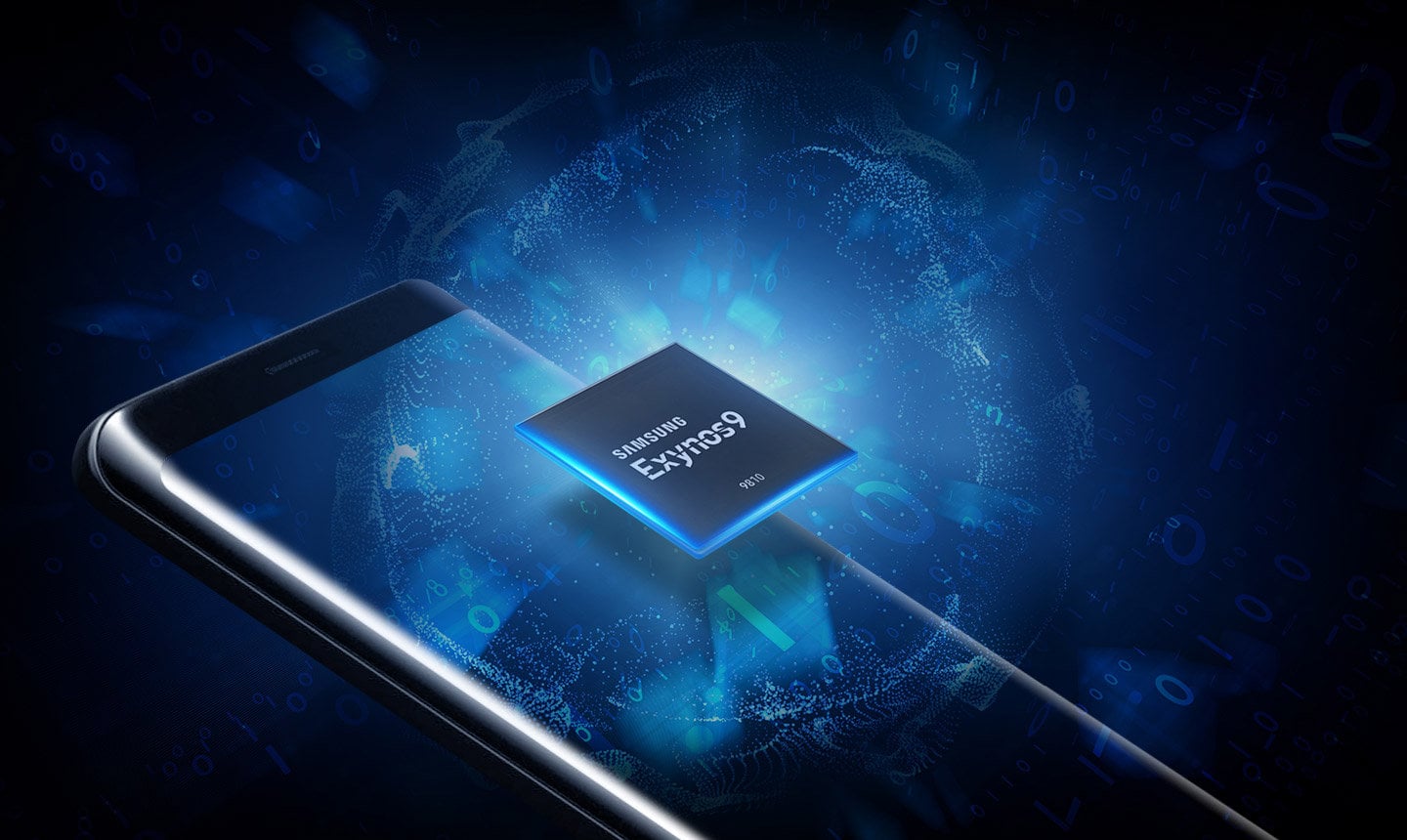Samsung officially unveiled its new flagship mobile processor today, the Exynos 9810. This is the first proper Exynos 9 series SoC. Samsung classified the Galaxy S8's Exynos 8895 as a 9 series chip even though its model number was 8895. The Galaxy S9 and Galaxy S9+ will be the first handsets to be powered by this new processor.
We also know that in markets like the United States, Samsung's new flagship smartphones will be powered by the Qualcomm Snpadragon 845 processor which has already been unveiled. Both chips are quite identical which is why a specs comparison becomes necessary.
Samsung Exynos 9810 vs. Qualcomm Snapdragon 845
The Exynos 9810 and Snapdragon 845 are both built on Samsung's second-generation 10nm FinFET LPP process. They also feature octa-core CPUs, Gigabit LTE modems, dual-ISPs, Bluetooth 5.0 and support for 4K screens. Aside from improved efficiency for AR and VR applications, the new chips also promise enhanced machine learning and artificial intelligence capabilities.
The comparison table below lists the similarities and differences between these two chipsets in detail. Samsung is yet to reveal the full CPU parameters of the Exynos 9810 so some information is still missing.
| Exynos 9810 | Snapdragon 845 | |
| Process | 2nd Gen 10nm FinFET | 2nd Gen 10nm FinFET |
| CPU Cores | Octa-Core, 64-bit | Octa-Core, 64-bit |
| CPU | 4 x 2.9GHz Exynos M3 + 4 x 1.9GHz Cortex-A55 | 4 x 2.8GHz Kryo 385 + 4 x 1.7GHz Kryo 385 |
| GPU | ARM Mali-G72 MP18 | Adreno 630 |
| Display Resolution | 4K UHD (4096 x 2160) or WQUXGA (3840 x 2400) 60FPS | 4K UHD (4096 x 2160) 60FPS |
| Graphics API Support | OpenGL ES 3.2, Vulkan 1.0, OpenCL 2.0, DirectX 11, Renderscript | OpenGL ES 3.2, Vulkan 1.0, OpenCL 2.0, DirectX 12, Renderscript |
| RAM | LPDDR4X | LPDDR4X Quad-channel 16-bit 1866 MHz |
| Storage | UFS 2.1, & SD 3.0 | UFS 2.1, & SD 3.0 |
| ISP | Dual ISP | Dual ISP |
| Camera | 24MP Single, 16MP+16MP Dual | 32MP Single, 16MP Dual |
| Video Recording | Up to 4K @ 120FPS | Up to 4K @ 60FPS |
| Video Playback & Codecs | MFC, Up to 4K @ 120FPS; 10-bit HEVC (H.265), H.264, VP9 | Up to 4K @ 60FPS; 10bit HDR, H.264 (AVC), H.265 (HEVC), VP9 |
| Audio | Unknown chip with 32bit/384kHz quality | Qualcomm Aqstic, Qualcomm aptX HD with 384kHz/32bit quality |
| Modem | LTE Cat. 18 6CA 1.2Gbps Download; LTE Cat. 18 2CA 200 Mbps Upload | X20 LTE Cat. 18 1.2Gbps Download; LTE Cat. 13 150Mbps Upload |
| Wi-Fi | Dual-Band Wi-Fi ac/b/g/n with MU-MIMO | Wi-Fi ad, Multi-gigabit Wi-Fi ac/b/g/n with MU-MIMO |
| Bluetooth |
5.0 |
5.0 |
| Global Positioning | GPS, GLONASS, BeiDou | GPS, GLONASS, BeiDou, Galileo, QZSS, SBAS |
| Security | Samsung KNOX, Security Processing Unit, DRAM encryption | Qualcomm Secure Processing Unit, Qualcomm Processor Security, Qualcomm Mobile Security |
| Charging | Samsung Adaptive Fast Charge, Fast Wireless Charging (Qi & PMA) | Quick Charge 4+ (USB PD Compatible) |
It's difficult to say which chip is going to be better based on specifications alone. The performance that you and I will experience on the Galaxy S9 depends on a variety of factors. Samsung has a habit of optimizing the Exynos variants of Galaxy flagships better than the Snapdragon variants so we hope that the Snapdragon-powered versions of the Galaxy S9 will be equal in terms of performance to their Exynos counterparts.

